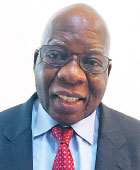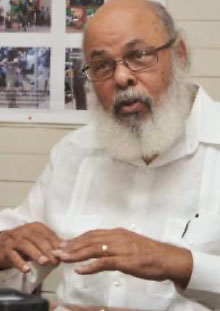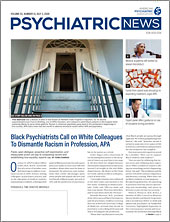May 8 was a very sad day for Jamaica for she lost an illustrious son. It was equally sad for those of us who had come to know Professor Emeritus Frederick Hickling through our professional wanderings and also for those patients, students, and other friends whose lives had been touched by him.
I have always debated whether great men are created or they achieve greatness. Dr. Hickling probably met the criteria for both categories. Much has been written about him, but much more remains to be said. The full extent of his contributions to psychiatry has yet to be fully appreciated.
Dr. Hickling had many facets: He was a poet, a musician, a debater, and, above all, a sensitive, caring individual who was sometimes misunderstood because of his deeply held philosophical and political views. He had the rare gift of being a great debater who was capable of vehemence but never harbored any rancor.
He was a towering figure, not only physically but also in terms of his genius. He had a beard that looked like the mane of a lion, and like a lion, he would stealthily walk down a hallway with steady and regal steps, much like a lion prowling through the forest. Deep down, however, he was a lamb who cared very much for the welfare of others.
Dr. Hickling distinguished himself early in high school. He had an incisive intellect and a piercing sense of humor. Long before becoming a physician, he studied at the University of the West Indies and then at St. Thomas Hospital in London and Edinburgh University in Scotland. While in the United Kingdom, he witnessed how the West Indian and other immigrants were treated and was aggrieved by the lack of social justice. He encountered discrimination himself when some of his early original research papers were rejected for publication. Nevertheless, he was not deterred by these kinds of experiences, which fueled his determination to address the wounds of slavery.
After his psychiatric training and practice in the United Kingdom, he returned to his native Jamaica to continue his work. His thoughts and creativity flourished against setbacks. He was moved by the early history of the West Indies, including the trauma of slavery and colonization. His interest in this area was very broad and buttressed by his wide reading and experience. He was not only an expert in African history and culture, but he was also very knowledgeable about classical history. In his understanding of slavery and racism, he was like James Baldwin. Like Bob Marley, he believed that the struggle is on and the fight not over and that we cannot forget the “400 years.” He is reputed to have said that 70% of Jamaicans have mental illness—a theme he developed into his mantra “own your madness.” In an awards speech in Germany, he used the initials “TRMS,” meaning “this madness must stop”—that is, colonial oppression and exploitation. When he said 70% of Jamaicans were mad, I do not believe anyone else could have made that statement with impunity or without an outcry.
In wanting to give back to his people, Dr. Hickling was engaged in a variety of mental health care projects in Jamaica. He shared with me an interest in training African mental health workers. I do not know if he succeeded, but as everyone knows, “Ars longa, vita brevis” (“Art is long, but time is fleeting”).
Dr. Hickling had too many accomplishments to list here. He was the recipient of several national and international awards. Other major achievements included his efforts at deinstitutionalization and advocacy for access to mental health services in Jamaica. In a recent award lecture in Berlin, he emphasized his frequent exhortation to his students: “If you don’t write it, you haven’t done it.” He is perhaps one of the few legitimate critics of Western classificatory systems of classifications.
I believe we will learn that his most important contribution was in the field of educational pedagogy rather than mental health. He firmly believed in the value of education as a means to emancipation and achieving self-esteem. He is the newest hall of famer to the Pantheon that already houses the likes of Bob Marley, James Baldwin, and Frantz Fanon. What an event it would have been to see Dr. Hickling and Bob Marley sipping rum and Coke on a Kingston beach by a fire burning until midnight. He was amazing. May his soul rest in peace. ■


